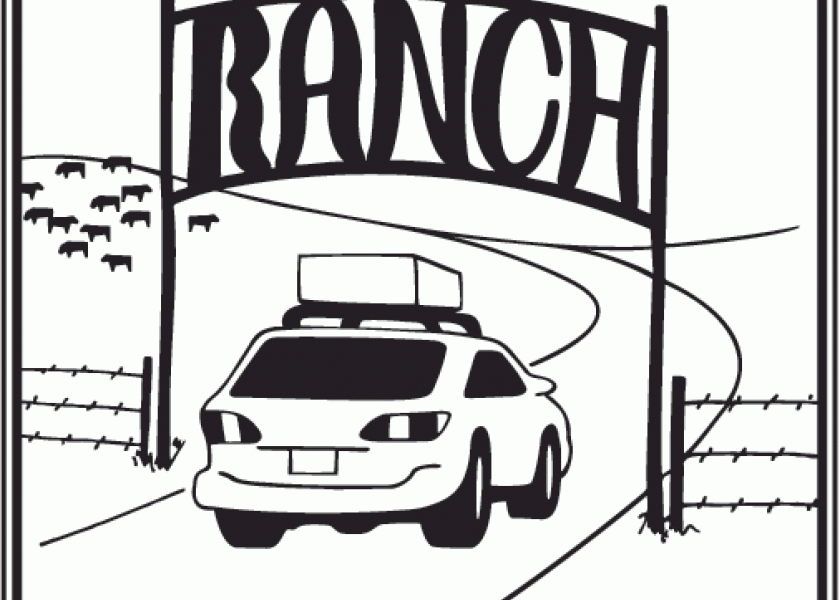BeefTalk: Summer Safety for the Farm and Ranch

Visitors may not be aware of the dangers on the farm or ranch.
By: Kris Ringwall, Beef Specialist, NDSU Extension Service
Safety never should be taken for granted on any farm or ranch. And even more so when guests arrive, so plan ahead.
There is nothing like a nice summer evening as family and friends are gathered for relaxation out in the country. The noise and busyness are removed, leaving some time for just being.
Growing up on a farm or ranch seemed to be the norm and something everyone did. At least that was the thinking for all those kids who grew up in the middle of the last century. Granted, not everyone wanted to stay on the home place, but regardless of where life led, the memories of those carefree days are real.
But times have changed, and today, most kids do not have the opportunity to explore and reach out to nature as farm and ranch kids did in the past. If I were to speculate, when I graduated from high school in the early ’70s, most of the graduating classes from the many rural communities were 80-plus percent country kids. Today, those numbers are probably reversed.
I do not know the real numbers, but that is not important. What is important is the fact that many, many children today grow up in a city or urban environment with little contact or interaction with the farms and ranches of yesterday. The stark reality: Even if a child is growing up on a modern farm or ranch, the complexities of today’s agriculture often prohibit much involvement. Instead, those “country kids” are pretty urban-friendly.
That is simply a statement of today’s world. But those cherished farms and ranches still exist, and the trip back is still an opportunity.
But a big caution sign needs to be in place. The urbanized child is not farm or ranch savvy. Child safety is a huge concern because when a child does not grow up in a rural environment, the many survival traits of rural youth are missing.
Growing up, we buzzed around cows and bulls and pigs and chickens and tractors and drills and about any other obstacle that would be around. Our skate parks were cow paths and the ramps simply cliffs. In fact, even back then, the arrival of the city cousins was always a bit challenging.
The story goes that it really was my own cousins who chased several pigs to death on a hot summer afternoon. Catching them was much like the centennial greased pig chase, only in this case, the pigs were in a pasture supposedly gaining weight for market. Those city kids just did not know.
Today, I am not so sure greased pig catching is even allowed. The last one I was at was decades ago in Columbus, and the pigs must have weighed in just shy of 200 pounds. Greased, no one was going to catch them. I do remember an awful lot of people piled up behind the pickup, a lot of noise, some strong squealing and eventually three pigs leaving a pile of people in the middle of Main Street with nothing to do.
The “good old days” were real. But how many children today would know how to catch a pig? I can remember handing the city cousins a bucket of feed for 30 troughs and they always would put the whole bucket in one trough. And they wouldn’t even spread out the grain. Those city cousins had no concept of how to feed a herd.
And then there was the stud. Colts were always pretty nice, but the same could not be said for the stud. Or the boar, the bull, the ram or maybe even the rooster. One simply knew: Do not go in the stud pen. But those city kids, no, they just climbed over the fence like a bunch of lemmings following one after the other over a cliff. Retrieval was always successful but not fun.
Today, these memories only serve as strong reminders that those summer visitors are pretty naïve when it comes to farm and ranch safety. Constant monitoring of not only the little tykes, but their parents as well, is necessary. As equipment has gotten larger, there is no room for errors and certainly not for passengers and wannabe farmers. Equipment operators often are not used to company, and standing in what seemed to be a safe place is not safe if the operator does not know you are there.
Today is not a day to overreact, but it’s certainly a day to contemplate the arrival of summer guests and draw up a plan for everyone’s safety. Perhaps simply shutting down for the day, pulling the keys, locking up the shop and making sure the pen gates are all secure would be a good practice.
Prepare for summer family and guests and do not expect, as the “good old days” flashbacks set in, that the next generation has any common sense on how to herd cows, shut gates, watch out for the bull, catch a calf or even why there are sharp barbs on the wire fence. Think safety first.
May you find all your ear tags.







